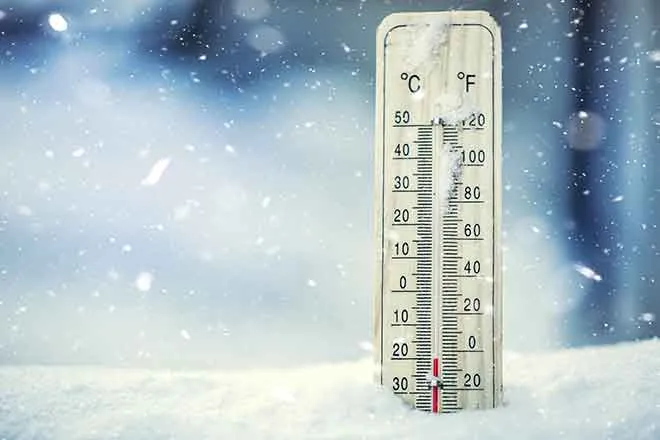
Daily Audio Newscast - September 10, 2024
News from around the nation.
As Harris and Trump take the debate stage, Project 2025 will be a focus; Trump campaign amplifies false claim about Haitian migrants in Ohio; Could women and minorities win more under Oregon voting measure? As summer fades, North Dakota organizers feel good about Tribal members voting.
Transcript
The Public News Service Daily newscast September the 10th, 2024.
I'm Mike Clifford.
The highly anticipated debate between former President Donald Trump and Vice President Kamala Harris is tonight.
And as election day inches closer, more attention is being placed on the role of toss-up states such as Nevada.
Harris has launched an issues page on her campaign website, outlining a number of her policy decisions and how they differ from Project 2025.
Controversial policy playbook issued by a right-wing think tank called the Heritage Foundation.
While Trump has tried to distance himself from Project 2025, it's proved to be quite a challenge since many influential Trump loyalists and allies are behind it.
Julie Milliken with the nonprofit Media Matters for America says the Heritage Foundation has a proven track record of success.
They have consistently gotten the majority of their mandate for leadership proposals implemented by incoming Republican administrations.
Again, going back to Reagan.
Milliken says that in the first year of the Trump administration, the Heritage Foundation touted that more than two-thirds of their mandates were enacted under Trump.
The debate will be hosted by ABC and will start at 6 p.m. Pacific time.
Milliken considers Project 2025 to be what she calls expansive and extreme, which she says can lead voters to feel overwhelmed.
I'm Alex Gonzalez reporting.
Meantime, the Trump campaign promoted an outlandish claim on Monday that Haitian immigrants in Springfield, Ohio have abducted and eaten their neighbors' pets.
That from the New York Times.
A spokesperson for the city of Springfield said there have been no credible reports or specific claims of pets being harmed, injured, or abused by individuals within the immigrant community.
The city's police division said it also had received no reports related to pets being stolen and eaten.
Meantime, Oregon voters will decide on a potential change to the state's electoral system in November.
More now from Eric Tegethoff.
If passed, Measure 117 would create a ranked-choice voting system in federal and statewide elections and give cities and counties the ability to adopt this type of voting system as well.
Melanie Billings-Yoon with the League of Women Voters of Portland says the system would replace primaries with a single ballot where voters would rank several candidates based on their preference.
She says some candidates initially deemed unelectable could benefit.
I certainly have felt that way back in previous elections.
Is it safe for me to vote for this candidate?
Would she be unelectable?
What we found is that ranked-choice voting opens the door to many more women and people of color to be elected.
Ranked-choice voting has already been adopted in some localities in Oregon, including Benton County, which adopted the method in 2020, and Portland, which will have its first ranked-choice election this year.
Opponents say the system would be too confusing or complicated for voters.
A report found nearly half of the winners in local races under ranked-choice voting systems were women.
This is Public News Service.
New findings that look at Native Americans participating in the election show a mixed bag, but North Dakota outreach leaders say they're coming off a strong summer of civic engagement.
The Native American Rights Fund last month reported national growth trends among tribal populations for voter turnout, including a 14-percentage-point increase between 2018 and 2020.
But because of longstanding barriers, there's still a significant gap compared to non-Hispanic white voters.
Erica Red Tomahawk with North Dakota Native Vote says her team connected with attendees at various powwows across all of the reservations in North Dakota.
There was a lot of meaningful conversations about the importance of voting.
So it was clear that there was a strong desire to participate actively.
She's optimistic the energy from those summer gatherings will result in stronger voter turnout this fall.
Overall, NDNV engaged with 200 prospective voters who received information on polling locations and voter ID requirements.
I'm Mike Moen.
And e-scooters that people can rent via an app or on their phones are now available in hundreds of American cities, helping to clear the air by cutting down on car trips.
E-scooter companies are now working to reduce their own carbon footprint.
Andrew Savage is head of sustainability for the country's biggest e-scooter company called Lime.
As we provide emissions-free transportation to our customers, it's really important that we walk the walk.
So we're trying to send a signal to the market that there's a demand among freight owners to decarbonize.
Lime says they are using more electric vans to collect and reposition the scooters.
I'm Suzanne Potter.
Studies showed between a third and a half of all people would have walked if they didn't rent an e-scooter, but the rest still avoid enough emissions to cover their carbon footprint.
Finally, for our Kathleen Shannon, recent extreme wildfires in Wyoming burned nearly a half a million acres, and among those recovering are ranchers and their surviving livestock.
Wildfires burned through large swaths of ranch lands in Northern Wyoming and Southern Montana last month, including the House Draw Fire, which blazed across nearly 175,000 acres in Johnson and Campbell counties.
No homes or human lives were lost, but important ranching resources were, such as hundreds of miles of fencing, winter forage, and summer grazing grounds.
Livestock deaths are hard to tally, but Micah Most with the University of Wyoming Extension Office says the injuries are apparent.
So we're seeing a lot of cattle with injured feet, burned feet from walking through or over the hot ground as they were escaping, and a lot of stress just generally on those animals.
Most says the outpouring of support from people in Wyoming and beyond has been deeply meaningful.
The office is coordinating hay donations.
This is Mike Clifford for Public News Service, member and listener supported.
Hear us on radio stations, big and small, your favorite podcast platform, find our content and trust indicators at publicnewsservice.org.
















